In high-tech tomato greenhouses, a 1 percent higher yield is considered a major breakthrough, but a different battle is being fought in other horticultural regions. In Nigeria for example, better seeds can easily increase the yield tenfold, sees Rutger Groot of East West Seed. Last week, the company launched seven new hybrid varieties to help strengthen and further diversify the Nigeria vegetable sector.
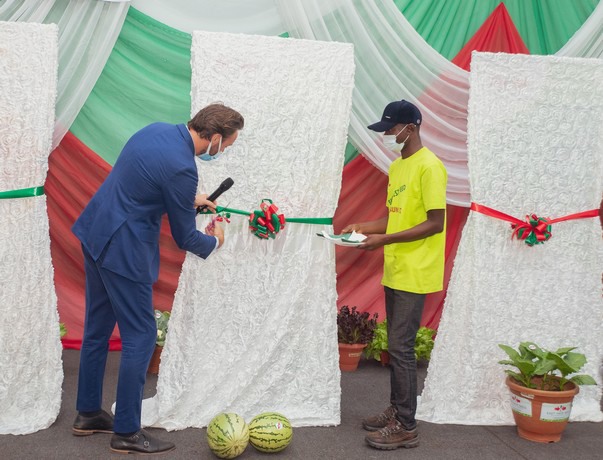
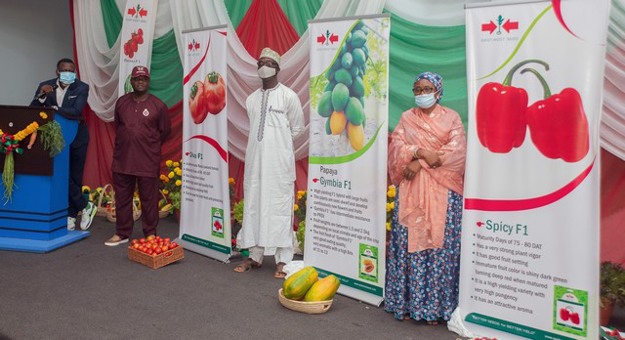 Launch of the new varieties this week. Some of the unveiled seeds include; Tomato Diva F1, Papaya Gymbia F1, Watermelon Sweet Sangria F1, Hot pepper Piquante Yellow F1, Hot Pepper Spicy F1, Gboma Eggplant (African Leafy Vegetable) Sika, and Cucumber Daewy F1.
Launch of the new varieties this week. Some of the unveiled seeds include; Tomato Diva F1, Papaya Gymbia F1, Watermelon Sweet Sangria F1, Hot pepper Piquante Yellow F1, Hot Pepper Spicy F1, Gboma Eggplant (African Leafy Vegetable) Sika, and Cucumber Daewy F1.
Hybrids or open pollinated
"Most Nigerian farmers don’t even use improved OP (open pollinated) seeds, using FSS (farmer saved seed) with inferior quality instead," says Rutger. "Quality seeds (both OPV and hybrid) cost a few dollars more but increase yields tenfold."
Ever since its establishment in 1982, the breeding company aims to improve smallholder farmers' livelihood through better seeds and better knowledge. That is why they develop activities in countries that do not have any international seed breeding companies active.
"The average tomato yield per hectare is currently 3.5 tons, and with an EWS hybrid and good techniques, it goes up to 45 tons within one crop cycle," says Rutger. "It also ensures a shelf life of 1,5 weeks instead of 2 days." Other key crops are onion, hot pepper, okra, watermelon, and cabbage.
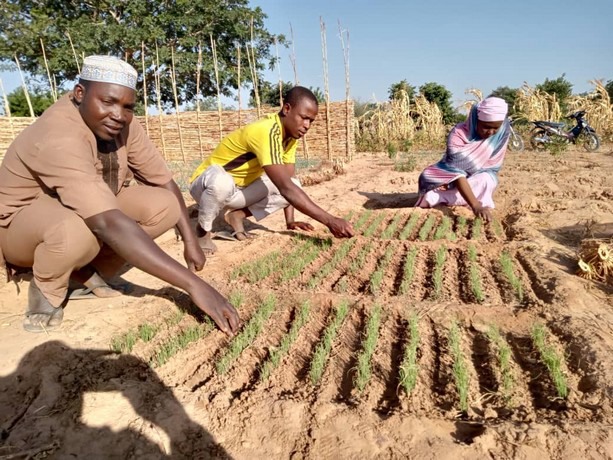 Demo farming training work
Demo farming training work
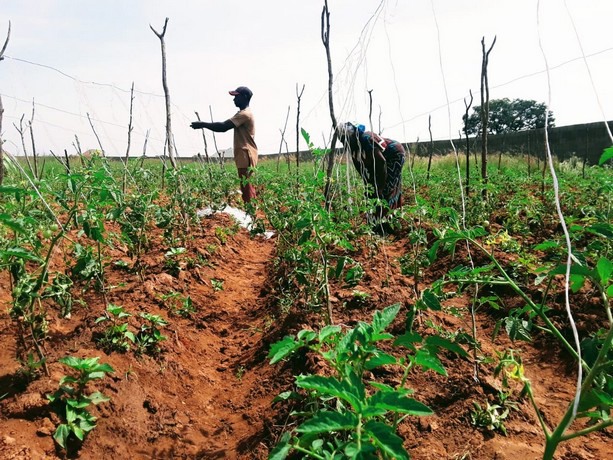
Demo farming training work
"For us, it's relatively easy: we have the genetics to be successful in tropical open field circumstances, where 95% of the local vegetable production originates and will continue to for the next few decades, but we also need partners to train even more farmers and turn them into agripreneurs," he says. "Currently, they invest in farm saved seed, fresh cow dung, and flooding the fields. They have to be convinced to invest money in quality seeds, fertilizer and irrigation, and techniques like nurseries, raised bedding, trellising, and crop rotation, instead of broadcasting seeds on unworked land."
Since seeing is believing, demos are crucial. That is why East West Seed has a special foundation, EWS Knowledge Transfer, which, jointly with RVO, WUR, Solidaridad, and many other partners, trains some 150,000 smallholder farmers each year in Africa and Asia. "Farmers recognize quality and like to produce healthier food - in other words, produce with lower pesticide usage. Customers want better and more affordable veggies. It's a win-win for everybody."
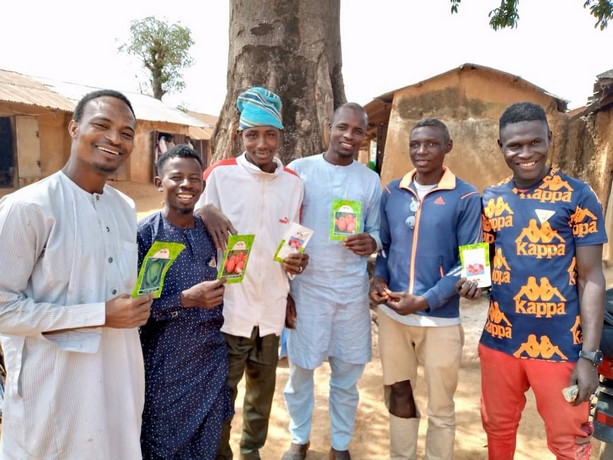

At the same time, there are many challenges for Nigerian growers. "A bad road system, no cold storage, no good supply of farm inputs, low knowledge level, access to finance, climate change, and little market awareness," Rutger sums up. "It's not an easy market. Companies coming to Nigeria must be patient, as break-even won’t come during the first decade, and you must want to share the benefit with your local partners and the farmers, not just earn a quick buck over their back and run off with the money."
For more information: East-West Seed
East-West Seed
inter@eastwestseed.com
www.eastwestseed.com
